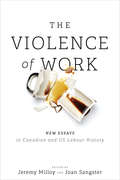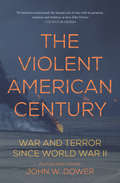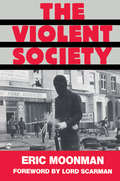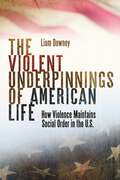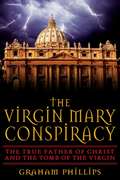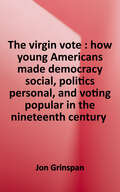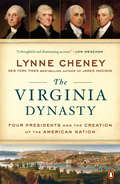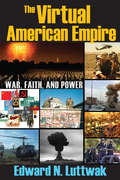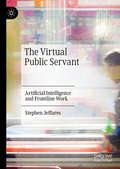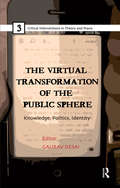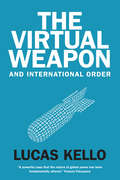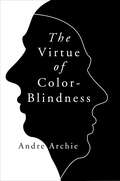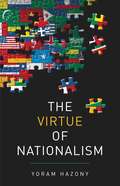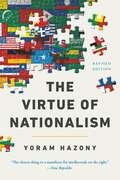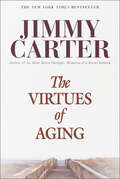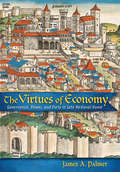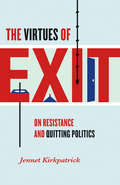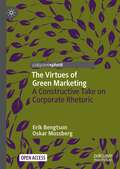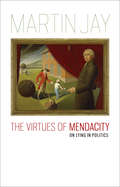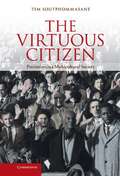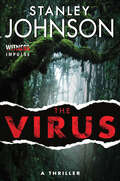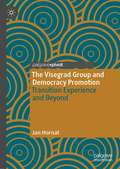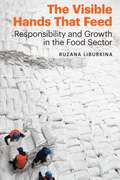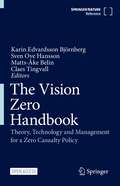- Table View
- List View
The Violence of Work: New Essays in Canadian and U.S. Labour History
From mining to sex work and from the classroom to the docks, violence has always been a part of work. This collection of essays highlights the many different forms and expressions of violence that have arisen under capitalism in the last two hundred years, as well as how historians of working-class life and labour have understood violence. The editors draw together diverse case studies, integrating analysis of class, age, gender, sexuality, and race into the scholarship. Essays span the United States and Canadian border, exploring gender violence, sexual harassment, the violent kidnapping of union organizers, the violence of inadequate health and safety protections, the culture of violence in state institutions, the mythology of working-class violence, and the changing nature of violence in extractive industries. The Violence of Work theorizes and historicizes violence as an integral part of working life, making it possible to understand the full scope and causes of workplace violence over time.
The Violent American Century: War and Terror Since World War II (Dispatch Books)
by John W. Dower&“Tells how America, since the end of World War II, has turned away from its ideals and goodness to become a match setting the world on fire&” (Seymour Hersh, investigative journalist and national security correspondent). World War II marked the apogee of industrialized &“total war.&” Great powers savaged one another. Hostilities engulfed the globe. Mobilization extended to virtually every sector of every nation. Air war, including the terror bombing of civilians, emerged as a central strategy of the victorious Anglo-American powers. The devastation was catastrophic almost everywhere, with the notable exception of the United States, which exited the strife unmatched in power and influence. The death toll of fighting forces plus civilians worldwide was staggering. The Violent American Century addresses the US-led transformations in war conduct and strategizing that followed 1945—beginning with brutal localized hostilities, proxy wars, and the nuclear terror of the Cold War, and ending with the asymmetrical conflicts of the present day. The military playbook now meshes brute force with a focus on non-state terrorism, counterinsurgency, clandestine operations, a vast web of overseas American military bases, and—most touted of all—a revolutionary new era of computerized &“precision&” warfare. In contrast to World War II, postwar death and destruction has been comparatively small. By any other measure, it has been appalling—and shows no sign of abating. The author, recipient of a Pulitzer Prize and a National Book Award, draws heavily on hard data and internal US planning and pronouncements in this concise analysis of war and terror in our time. In doing so, he places US policy and practice firmly within the broader context of global mayhem, havoc, and slaughter since World War II—always with bottom-line attentiveness to the human costs of this legacy of unceasing violence. &“Dower delivers a convincing blow to publisher Henry Luce&’s benign &‘American Century&’ thesis.&” —Publishers Weekly
The Violent Society: Violent Society
by Eric MoonmanFrom the Foreward: Each chapter of this work is in truth a separate essay or article in which an author distinguished in his field treats a different aspect or manifestation of violence in human society. I doubt whether so complete a treatise in so short a compass has been previously attempted. The reader will be left in no doubt when he reflects on what he has read that violence is, and always has been, a feature or a threat in human society- and will remain so. The reason why this must be so is made plain in the early chapters. Violent behaviour is a display of man's aggressive instinct: without that instinct, which he (and she) shares with the rest of the animal kingdom, the human species would not survive. First published in 1987. Routledge is an imprint of Taylor & Francis, an informa company.
The Violent Underpinnings of American Life: How Violence Maintains Social Order in the US
by Liam DowneyA damning examination of how violence serves to maintain social order and elite power in the United StatesThe Violent Underpinnings of American Life boldly asserts that violence—far from going against American ideals—is as American as apple pie, central to the country’s social order and the dominance of its most powerful groups. Drawing from extensive research and analysis of key social, political, and cultural events, Liam Downey investigates the myriad ways violence maintains the American way of life. Through compelling case studies, Downey identifies four main ways in which violence produces and maintains the American social hierarchy: the creation of divisions among non-elite social groups; the reinforcement of dominant discourses in multiple social arenas; the aligning of marginalized group identities with dominant institutional practices; and the selective promotion of the interests of specific, non-elite groups.This is the first book to argue that violence is both a negative, coercive power and a positive, productive one that helps produce not only social order but also consent, discipline, discourse, identity, subjectivity, and embodied knowledge, among other things. The Violent Underpinnings of American Life is an audacious work that argues violence is absolutely central to social life in America, and that Americans cannot effectively fight against the inequalities that surround them without accepting this reality.
The Virgin Mary Conspiracy: The True Father of Christ and the Tomb of the Virgin
by Graham PhillipsA convincing and cogent argument refuting the Assumption of the Virgin Mary in Church dogma and revealing the true father of Jesus• Provides historical and archaeological evidence of a tomb of the Virgin Mary• Introduces the theory that Jesus's father was Antipater, son of HerodWhat became of the Virgin Mary after the Crucifixion is one of the greatest mysteries of the Bible. Although it appears nowhere in the Bible, the belief in the Assumption-Mary's bodily ascension into heaven-is accepted by many Christians as historical fact. Some, however, believe that Mary died naturally and was buried in a tomb in Jerusalem's Valley of Jehosaphat. Others say that her final resting place was in the Roman ruins of Ephesus in Asia Minor.In 1950 Giovanni Benedetti, an archaeologist attached to the Vatican museum, found a fourth-century manuscript indicating that Mary had been smuggled out of Palestine to an island off the west coast of Britain. According to Benedetti's findings, England's first Bishop, St. Augustine, discovered Mary's tomb there in A.D. 597. The reigning pope, Gregory the Great, forbade St. Augustine to speak of this, initiating a conspiracy of silence that lasted 1,400 years. Similarly, as Benedetti was about to publish his findings, he was instructed by the Vatican to discontinue his research. Soon after, the Roman Catholic Church declared the Assumption dogma.In The Virgin Mary Conspiracy Graham Phillips unravels the truth behind this centuries-old ecclesiastical cover-up and discovers what may be Mary's final resting place. During his extensive research Phillips also discovered another controversial theory revealing that Jesus was the son of Antipater, the son of Herod, and therefore the true heir to Herod's throne, thus explaining his title of "King of the Jews."
The Virgin Queen: Elizabeth I, Genius of the Golden Age
by Christopher HibbertBiography of the woman who was queen for 45 years, during England's most dazzling era.
The Virgin Vote: How Young Americans Made Democracy Social, Politics Personal, and Voting Popular in the Nineteenth Century
by Jon GrinspanThere was a time when young people were the most passionate participants in American democracy. In the second half of the nineteenth century--as voter turnout reached unprecedented peaks--young people led the way, hollering, fighting, and flirting at massive midnight rallies. Parents trained their children to be "violent little partisans," while politicians lobbied twenty-one-year-olds for their "virgin votes"--the first ballot cast upon reaching adulthood. In schoolhouses, saloons, and squares, young men and women proved that democracy is social and politics is personal, earning their adulthood by participating in public life. Drawing on hundreds of diaries and letters of diverse young Americans--from barmaids to belles, sharecroppers to cowboys--this book explores how exuberant young people and scheming party bosses relied on each other from the 1840s to the turn of the twentieth century. It also explains why this era ended so dramatically and asks if aspects of that strange period might be useful today. In a vivid evocation of this formative but forgotten world, Jon Grinspan recalls a time when struggling young citizens found identity and maturity in democracy.
The Virginia Dynasty: Four Presidents and the Creation of the American Nation
by Lynne CheneyA vivid account of leadership focusing on the first four Virginia presidents--George Washington, Thomas Jefferson, James Madison, and James Monroe--from the bestselling historian and author of James Madison.From a small expanse of land on the North American continent came four of the nation's first five presidents--a geographic dynasty whose members led a revolution, created a nation, and ultimately changed the world. George Washington, Thomas Jefferson, James Madison, and James Monroe were born, grew to manhood, and made their homes within a sixty-mile circle east of the Blue Ridge Mountains. Friends and rivals, they led in securing independence, hammering out the United States Constitution, and building a working republic. Acting together, they doubled the territory of the United States. From their disputes came American political parties and the weaponizing of newspapers, the media of the day. In this elegantly conceived and insightful new book from bestselling author Lynne Cheney, the four Virginians are not marble icons but vital figures deeply intent on building a nation where citizens could be free.Focusing on the intersecting roles these men played as warriors, intellectuals, and statesmen, Cheney takes us back to an exhilarating time when the Enlightenment opened new vistas for humankind. But even as the Virginians advanced liberty, equality, and human possibility, they held people in slavery and were slaveholders when they died. Lives built on slavery were incompatible with a free and just society; their actions contradicted the very ideals they espoused. They managed nonetheless to pass down those ideals, and they became powerful weapons for ending slavery. They inspired Abraham Lincoln and Frederick Douglass and today undergird the freest nation on earth. Taking full measure of strengths and failures in the personal as well as the political lives of the men at the center of this book, Cheney offers a concise and original exploration of how the United States came to be.
The Virtual American Empire: On War, Faith and Power
by The Virtual American EmpireThis is Edward Luttwak's third and arguably fi nest collection of essays. In a challenge to the intellectual backbone of those who write about peace as something one wishes into existence through mediation and good will, Luttwak's view of warfare is bracing: "An unpleasant truth, often overlooked, is that although war is a great evil, it does have a great virtue: it can resolve political confl icts and lead to peace."Luttwak articulates positions shared by military fi gures and political heroes who have their feet on the ground rather than in the sand. He shares his thoughts in essays covering America at war and the new Bolshevism in Russia, ranging in place from the Middle East to Latin America and stops along the way to Byzantium. Luttwak examines military reform, great powers grown small, and drugs, crime and corruption as part of the common culture of the West. Th ough his message is sometimes delivered in a light tone, he is never foolish and never trivial.Luttwak develops the bracing thesis that cease fi res and armistices in states of war, while sometimes inconclusive, are lesser evils than prospects for a nuclear meltdown. Even in arenas of geopolitical antagonism, neither Americans nor Russians have been inclined to intervene competitively in wars of lesser powers. As a consequence, intermittent war persists; and greater dangers to the world are averted. It is no exaggeration to compare Luttwak to Clausewitz in the nineteenth century and Herman Kahn in the twentieth century. Th is volume deserves to be read and digested by all who would understand contemporary geopolitics.
The Virtual Public Servant: Artificial Intelligence and Frontline Work
by Stephen JeffaresWith recent advances and investment in artificial intelligence, are we on the verge of introducing virtual public servants? Governments around the world are rapidly deploying robots and virtual agents in healthcare, education, local government, social care, and criminal justice. These advances not only promise unprecedented levels of control and convenience at a reduced cost but also claim to connect, to empathise, and to build trust. This book documents how—after decades of designing out costly face to face transactions, investment in call centres, and incentivising citizens to self-service—the tech industry is promising to re-humanise our frontline public services. It breaks out of disciplinary silos and moves us on from the polarised hype vs. fear discussion on the future of work. It does so through in-depth Q-methodology interviews with a wide range of frontline public servants, from doctors to librarians, from social workers to school receptionists, and from police officers to call handlers. The first of its kind, this book should be of interest across the social sciences and to anyone concerned with how recent measures to digitise and automate our services are paving the way for the development of full-blown AI in frontline work.
The Virtual Transformation of the Public Sphere: Knowledge, Politics, Identity (Critical Interventions In Theory And Praxis Ser.)
by Gaurav DesaiThis book explores how new media technologies such as e-mails, online forums, blogs and social networking sites have helped shape new forms of public spheres. Offering new readings of Jürgen Habermas’s notion of the public sphere, scholars from diverse disciplines interrogate the power and possibilities of new media in creating and disseminating public information; changing human communication at the interpersonal, institutional and societal levels; and affecting our self-fashioning as private and public individuals. Beginning with philosophical approaches to the subject, the book goes on to explore the innovative deployment of new media in areas as diverse as politics, social activism, piracy, sexuality, ethnic identity and education. The book will immensely interest those in media, culture and gender studies, philosophy, political science, sociology and anthropology.
The Virtual Weapon and International Order
by Lucas KelloAn urgently needed examination of the current cyber revolution that draws on case studies to develop conceptual frameworks for understanding its effects on international order The cyber revolution is the revolution of our time. The rapid expansion of cyberspace brings both promise and peril. It promotes new modes of political interaction, but it also disrupts interstate dealings and empowers non-state actors who may instigate diplomatic and military crises. Despite significant experience with cyber phenomena, the conceptual apparatus to analyze, understand, and address their effects on international order remains primitive. Here, Lucas Kello adapts and applies international relations theory to create new ways of thinking about cyber strategy. Kello draws on a broad range of case studies, including the Estonian crisis, the Olympic Games operation against Iran, and the cyber attack against Sony Pictures. Synthesizing qualitative data from government documents, forensic reports of major incidents and interviews with senior officials from around the globe, this important work establishes new conceptual benchmarks to help security experts adapt strategy and policy to the unprecedented challenges of our times.
The Virtue of Color-Blindness
by Andre ArchieA black professor of classics takes on the cult of diversity, equity, and inclusion. In this compelling appeal to true justice, he demolishes the identity politics that makes a travesty of Martin Luther King&’s dream.Martin Luther King&’s dream of a colorblind society is dead. Powerful political, educational, and corporate forces are making race the defining feature of American life, and nobody dares to stop them. Naively confident in the &“marketplace of ideas,&” conservatives have done nothing as cultural Marxists have rewritten America&’s history and redefined its ideals. But we can&’t assume that poisonous ideas will simply wither when exposed to the light. The truth, argues the maverick black scholar Andre Archie, requires a spirited defense. In The Virtue of Colorblindness, Archie exposes the injustice of our emerging civil religion. Radical ideologues now teach our children that colorblindness is racism, while the &“Diversity, Equity, and Inclusion&” industry promotes policies that punish some people and reward others because of the color of their skin. Far from helping black Americans—or any other Americans—these racists of the left are sowing division, tribalism, and resentment. The attack on colorblindness is anti-American and does not deserve a respectful hearing. It&’s time to fight back.
The Virtue of Nationalism
by Yoram HazonyA leading conservative thinker argues that a nationalist order is the only realistic safeguard of liberty in the world today Nationalism is the issue of our age. From Donald Trump's "America First" politics to Brexit to the rise of the right in Europe, events have forced a crucial debate: Should we fight for international government? Or should the world's nations keep their independence and self-determination? In The Virtue of Nationalism, Yoram Hazony contends that a world of sovereign nations is the only option for those who care about personal and collective freedom. He recounts how, beginning in the sixteenth century, English, Dutch, and American Protestants revived the Old Testament's love of national independence, and shows how their vision eventually brought freedom to peoples from Poland to India, Israel to Ethiopia. It is this tradition we must restore, he argues, if we want to limit conflict and hate--and allow human difference and innovation to flourish.
The Virtue of Nationalism
by Yoram HazonyIn this &“tour de force&” (National Review), the leader of the National Conservatism movement argues that nationalism is the only realistic safeguard of liberty in the world today Nationalism is the issue of our age. From Donald Trump's "America First" politics to Brexit to the rise of the right in Europe, events have forced a crucial debate: Should we fight for international government? Or should the world's nations keep their independence and self-determination? In The Virtue of Nationalism, Yoram Hazony contends that a world of sovereign nations is the only option for those who care about personal and collective freedom. He recounts how, beginning in the sixteenth century, English, Dutch, and American Protestants revived the Old Testament's love of national independence, and shows how their vision eventually brought freedom to peoples from Poland to India, Israel to Ethiopia. It is this tradition we must restore, he argues, if we want to limit conflict and hate -- and allow human difference and innovation to flourish.
The Virtues of Aging
by Jimmy Carter"We are not alone in our worry about both the physical aspect of aging and the prejudice that exists toward the elderly, which is similar to racism or sexism. What makes it different is that the prejudice also exists among those of us who are either within this group or rapidly approaching it. When I have mentioned the title of this book to a few people, most of them responded, 'Virtues? What could possibly be good about growing old?' The most obvious answer, of course, is to consider the alternative to aging. But there are plenty of other good answers--many based on our personal experiences and observations. "--from THE VIRTUES OF AGINGFrom the Trade Paperback edition.
The Virtues of Economy: Governance, Power, and Piety in Late Medieval Rome
by James A. PalmerThe humanist perception of fourteenth-century Rome as a slumbering ruin awaiting the Renaissance and the return of papal power has cast a long shadow on the historiography of the city. Challenging this view, James A. Palmer argues that Roman political culture underwent dramatic changes in the late Middle Ages, with profound and lasting implications for city's subsequent development. The Virtues of Economy examines the transformation of Rome's governing elites as a result of changes in the city's economic, political, and spiritual landscape.Palmer explores this shift through the history of Roman political society, its identity as an urban commune, and its once-and-future role as the spiritual capital of Latin Christendom. Tracing the contours of everyday Roman politics, The Virtues of Economy reframes the reestablishment of papal sovereignty in Rome as the product of synergy between papal ambitions and local political culture. More broadly, Palmer emphasizes Rome's distinct role in evolution of medieval Italy's city-communes.
The Virtues of Exit: On Resistance and Quitting Politics
by Jennet KirkpatrickSuccessful democracies rely on an active citizenry. They require citizens to participate by voting, serving on juries, and running for office. But what happens when those citizens purposefully opt out of politics? Exit—the act of leaving—is often thought of as purely instinctual, a part of the human "fight or flight" response, or, alternatively, motivated by an antiparticipatory, self-centered impulse. However, in this eye-opening book, Jennet Kirkpatrick argues that the concept of exit deserves closer scrutiny. She names and examines several examples of political withdrawal, from Thoreau decamping to Walden to slaves fleeing to the North before the Civil War. In doing so, Kirkpatrick not only explores what happens when people make the decision to remove themselves but also expands our understanding of exit as a political act, illustrating how political systems change in the aftermath of actual or threatened departure. Moreover, she reframes the decision to refuse to play along—whether as a fugitive slave, a dissident who is exiled but whose influence remains, or a government in exile—as one that shapes political discourse, historically and today.
The Virtues of Green Marketing: A Constructive Take on Corporate Rhetoric (Rhetoric, Politics and Society)
by Erik Bengtson Oskar MossbergThis open access book explores the idea that corporate rhetoric can be a force for good. In developing a new framework for analysis and discussion of green marketing, the authors argue that corporate environmental rhetoric can be harnessed to contribute to climate transition and a more sustainable market economy. The work explores the transformative power inherent in green promises and sets a vision of what green marketers should strive for. Engaging with selected research on organizational theory, the authors negotiate the conflicting paradigms of rhetorical theory and their relation to the study of corporate legitimation practices. The resulting theoretical framework provides an analytical scheme that can be useful in various disciplines – such as sociology, economics, law, marketing theory, and communication. It also illustrates how we can find new answers to contemporary challenges by re-imagining rhetoric.This is an open access book.
The Virtues of Mendacity: On Lying in Politics (Richard Lectures)
by Martin JayWhen Michael Dukakis accused George H. W. Bush of being the "Joe Isuzu of American Politics" during the 1988 presidential campaign, he asserted in a particularly American tenor the near-ancient idea that lying and politics (and perhaps advertising, too) are inseparable, or at least intertwined. Our response to this phenomenon, writes the renowned intellectual historian Martin Jay, tends to vacillate--often impotently--between moral outrage and amoral realism. In The Virtues of Mendacity, Jay resolves to avoid this conventional framing of the debate over lying and politics by examining what has been said in support of, and opposition to, political lying from Plato and St. Augustine to Hannah Arendt and Leo Strauss. Jay proceeds to show that each philosopher's argument corresponds to a particular conception of the political realm, which decisively shapes his or her attitude toward political mendacity. He then applies this insight to a variety of contexts and questions about lying and politics. Surprisingly, he concludes by asking if lying in politics is really all that bad. The political hypocrisy that Americans in particular periodically decry may be, in Jay's view, the best alternative to the violence justified by those who claim to know the truth.
The Virtuous Citizen
by Tim SoutphommasaneWhat does it mean to be a citizen in a multicultural society? And what role must patriotism play in defining our relationship with our country and fellow citizens? In The Virtuous Citizen Tim Soutphommasane answers these questions with a critical defence of liberal nationalism. Considering a range of contemporary political debates from Europe, North America and Australia, over issues including multiculturalism, national history, civic education and immigration, Soutphommasane argues that a love of country should be valued alongside tolerance, mutual respect and public reasonableness as a civic virtue. A liberal form of patriotism, grounded in national identity, is if anything essential to a successful polity in a diverse society. This book is required reading not only for political theorists and philosophers but also researchers and professionals in political science, sociology, history and public policy.
The Virus
by Stanley JohnsonFrom renowned British politician Stanley Johnson, an exciting, intelligent thriller about the rise of a mysterious virus and one man's fight to stop a deadly pandemic, perfect for fans of Michael Crichton and Dan Brown.How do you stop an invisible killer?When a young woman in New York City dies mysteriously after a trip to Europe, top epidemiologist Lowell Kaplan identifies the cause of death as the Marburg Virus—a fatal strain that has surfaced only once before in history.Determined to trace the source of the disease, Kaplan follows a trail of intrigue from the labs of Germany to the jungles of Central Africa. But powerful forces are conspiring against him, determined to keep the secrets of the virus's origin deliberately under wraps. And with a global pandemic on the rise, Kaplan must go to unimaginable lengths to stop a deadly scheme and save mankind.
The Visegrad Group and Democracy Promotion: Transition Experience and Beyond (The Theories, Concepts and Practices of Democracy)
by Jan HornatThis book explores the substance and strategies of democracy promotion conducted by the Visegrad Group states (V4) – the Czech Republic, Hungary, Poland, and Slovakia. As these states are currently deemed to face democratic backsliding over thirty years after their own democratic transformations, the book discusses how democracy promotion is related to the four countries’ understanding of liberalism and democracy and to their political cultures. It also addresses the question of what motivates the V4 states to engage in the politically sensitive activities of democracy assistance and how they intend to share their own experience and know-how of the democratic transformation process. The book concludes by discussing the possible future developments in the respective states’ democracy promotion agendas. Examining the strategies, substance, and the domestic discourse related to the Visegrad states’ democracy promotion policies, the book presents a much-needed reflection on a niche subject in the foreign policy agendas of these post-communist states for academics and practitioners alike.
The Visible Hands That Feed: Responsibility and Growth in the Food Sector (Our Sustainable Future)
by Ruzana LiburkinaThe Visible Hands That Feed provides crucial insights into the rifts and regularities that are characteristic of today&’s food systems. These insights attend to the widespread disquiet about the ethics and politics of food production and trade. While challenging utopian thinking, these findings give hope by elaborating on the promising nature of what falls between political and moral agendas. In The Visible Hands That Feed Ruzana Liburkina approaches the food sector against the backdrop of its pivotal role for social and ecological relations to trace the potentials and limitations for sustainable change from within. Drawing on the results of ethnographic fieldwork in Europe and South America, Liburkina conducts an in-depth exploration of the practices, visions, concerns, and relationships that unfold at the very locations where food is grown, processed, stored, and served. By scrutinizing two critical notions in relation to sustainability—responsibility and growth—Liburkina offers insights into how sustainable change might be understood and further supported. In this first study of food production and provisioning that is grounded in participant observation in four types of food sector enterprises—farms, food processing companies, foodservice distributors, and public caterers—Liburkina fills an important gap in the literature on sustainable futures by offering detailed and diverse empirical insights into corporate food production and provisioning.
The Vision Zero Handbook: Theory, Technology and Management for a Zero Casualty Policy
by Sven Ove Hansson Karin Edvardsson Björnberg Matts-Åke Belin Claes TingvallThis open access handbook provides a comprehensive treatment of Vision Zero, an innovative policy on public road safety developed in Sweden. Covering all the major topics of the subject, the book starts out with a thorough examination of the philosophy, ideas and principles behind Vision Zero. It looks at conditions for the effectiveness of the policy, principles of safety and responsibility as well as critique on the policy. Next, the handbook focuses on how the Vision Zero ideas have been received and implemented in various legislations and countries worldwide. It takes into account the way Vision Zero is looked at in the context of international organizations such as the WHO, the UN, and the OECD. This allows for a comparison of systems, models and effects. The third part of the handbook discusses the management and leadership aspects, including ISO standards, equity issues, other goals for traffic and transportation, and opportunities for the car industry. Part four delves into tools, technologies and organizational measures that contribute to the implementation of Vision Zero in road traffic. Examples of specific elements discussed are urban and rural road designs, human factor designs, and avoiding drunk and distracted driving. The final part of the handbook offers perspectives on the transfer of Vision Zero policy to other areas, ranging from air traffic to suicide prevention and nuclear energy. Vision Zero is a public road safety policy including both a long-term goal that no one shall be killed or seriously injured as a consequence of accidents in road traffic and a safety principle stating that the design and function of the road transport system shall be adapted to meet the requirements that follow from that goal. It is a new road safety paradigm which has resulted in new types of responsibilities among stakeholders, technological innovations, and new strategies and organizational measures to achieve a safe system. The road safety work based on Vision Zero has shown promising results, and although Sweden has not yet reached a safe system, the number of fatalities and severe injuries has decreased substantially.This is an open access book.
